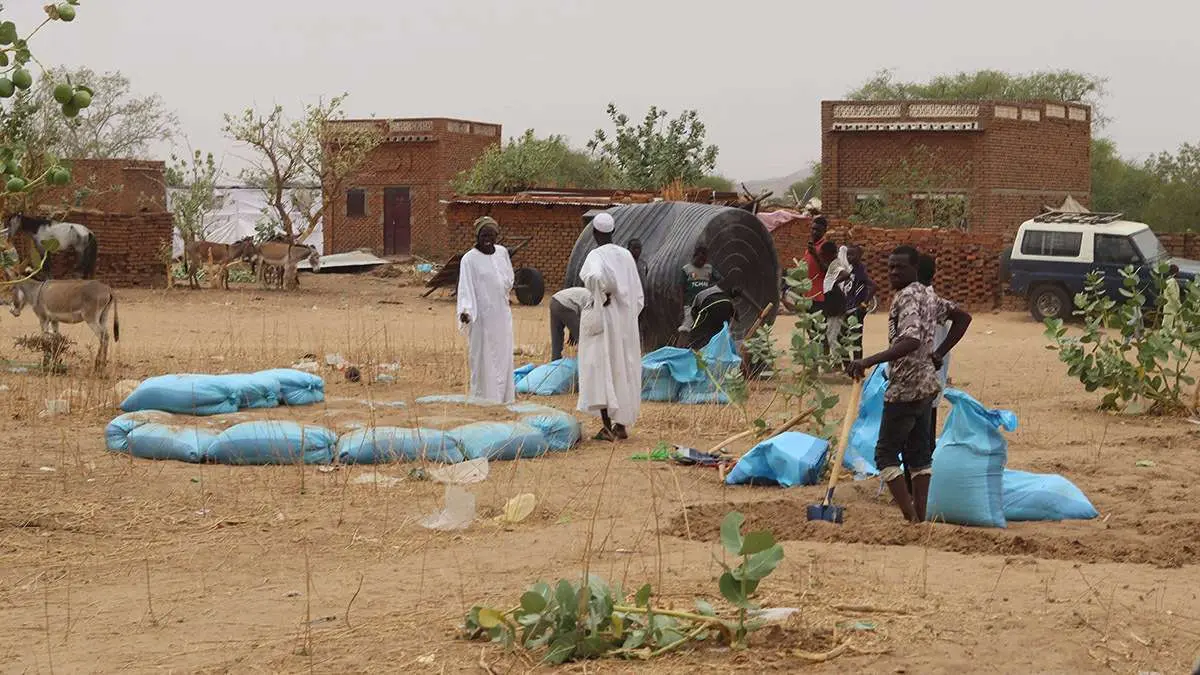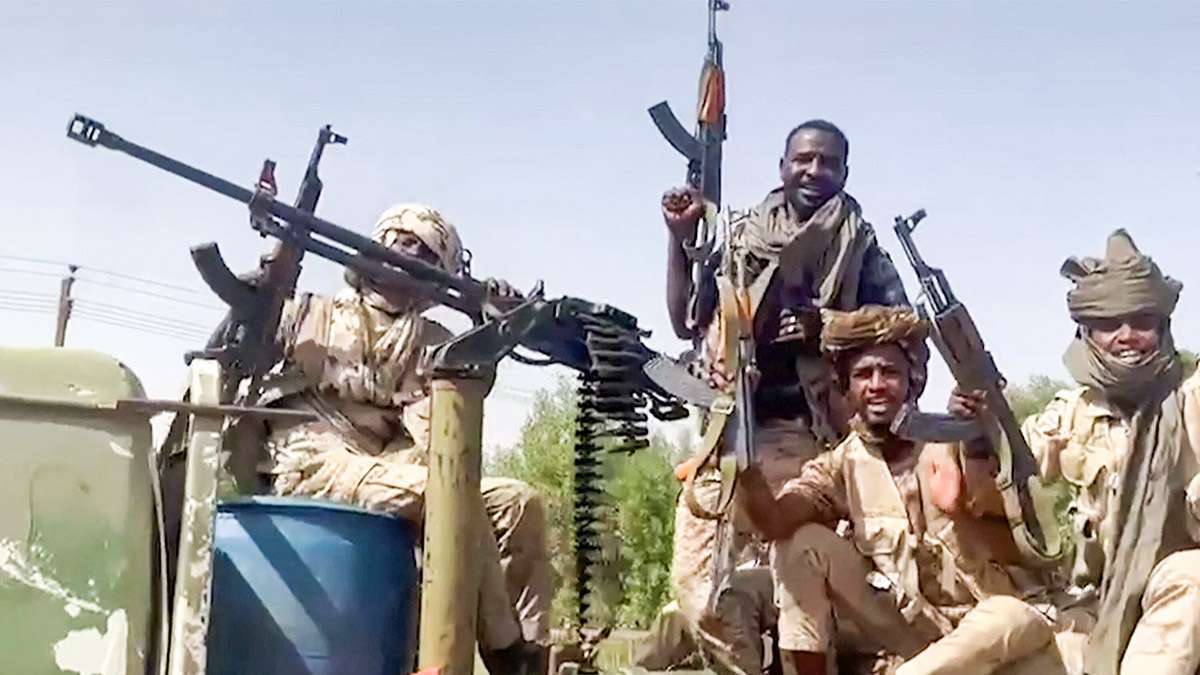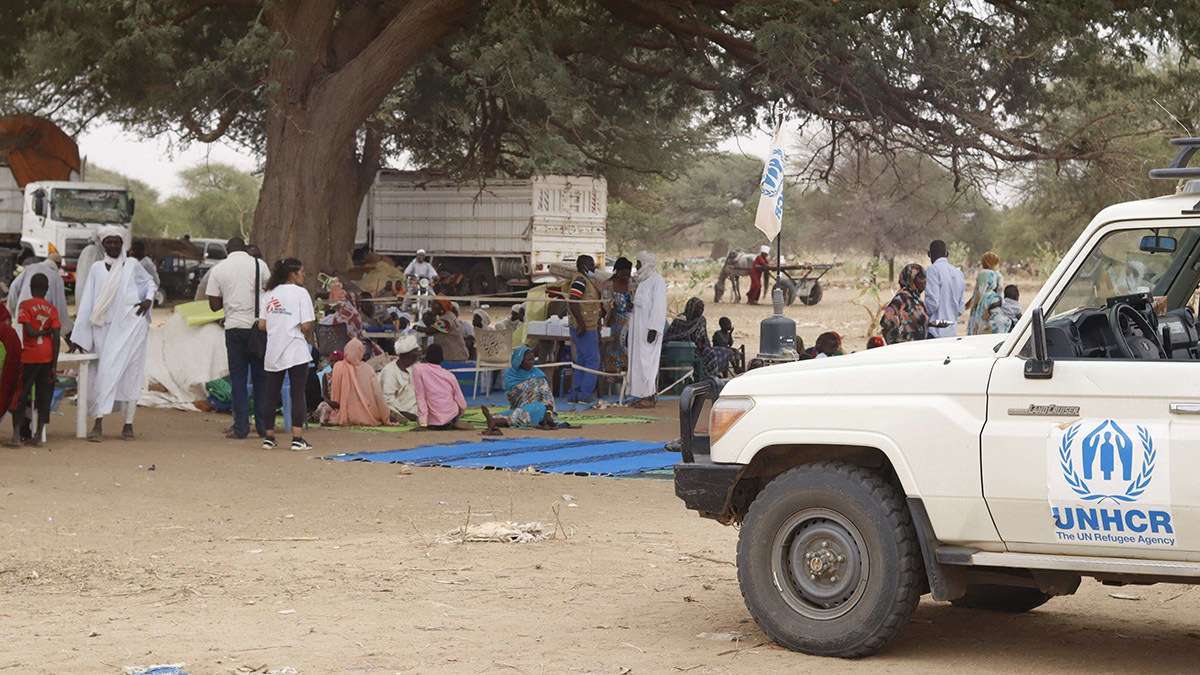Sixth truce in Sudan fails

Truces in Sudan seem to be losing their meaning. Neither the Sudanese Army, led by Abdel Fattah al-Burhan, nor the Rapid Support Forces (RSF) of the nicknamed Hedmeti have respected any of the six truces agreed since the outbreak of violence on 15 April last. The last one, the most hopeful for a definitive peace, has been violated again with new clashes in the capital.
It is now the job of the two opposing sides to reproach each other for who broke the truce first. "Our forces clashed at dawn today with rebels who tried to attack the Khartoum North Military Region command," a Sudanese army statement said.

The paramilitary version is somewhat different. They claim that the truce was violated by al-Burhan's army after attacking their "units and residential neighbourhoods with indiscriminate artillery and aerial bombardment".
"The Rapid Support Forces condemn the irresponsible actions of the leaders of the coup forces and extremist remnants of the defunct regime in violating the declared humanitarian truce and attacking our forces since dawn on Thursday in several of their localities," FAR states on its Twitter account. However, several videos have been posted on the same social network showing paramilitaries storming the presidential palace in Khartoum.
? #AlertaADN
— adn40 (@adn40) April 15, 2023
Medios internacionales reportan un golpe de Estado en Sudán, fuerzas paramilitares rebeldes tomaron el Aeropuerto de Jartum y el Palacio Presidencial pic.twitter.com/zemHja17sZ
In the ongoing reproaches, the media have played a key role. No surprises, as in any armed conflict. The conventional media, television and radio, take account of the army's power, in addition to the government's official social media accounts. FAR can only wage its war on Twitter.
While the military leadership decides to make and break the war, the humanitarian aid that was guaranteed by the sixth truce has been completely derailed. Sudan is experiencing an unprecedented humanitarian catastrophe, as defined by the United Nations because of the escalation and speed of events.
Thousands of foreigners have been evacuated and tens of thousands of Sudanese have fled the fire across land borders to neighbouring countries. Egypt, Chad and the Central African Republic are the main receiving countries of a mass exodus that seems to see no end in sight. The UN warns that more than 800,000 people may be seeking safety away from the violence in Sudan.

In any case, humanitarian aid was not the only hope for the pause in fighting agreed by the two sides. The Government of South Sudan, as the main mediator in the truce set for 4-11 May, indicated that the two warring leaders should use this week to appoint spokespersons for their delegations to agreed peace talks.
This same reality was already being contemplated by the UN Under-Secretary-General for Humanitarian Affairs, Martin Griffiths. All efforts to achieve a ceasefire have failed because of "the existential fact that those at war seem inclined to go ahead", he told the BBC in an interview. Failure, despite his meetings in recent days with both al-Burhan and Hedmeti.
In Port #Sudan, @volkerperthes and I spoke with General Burhan, General Hemedti and civil society leaders.
— Martin Griffiths (@UNReliefChief) May 3, 2023
We stressed that humanitarian aid must reach the people. But we need strong guarantees on the safety and security of aid workers and supplies. pic.twitter.com/cj4tpNApuh
Since 15 April, both the National Army and the FAR have dusted off the old formula of attributing violent acts to the supposed demands of public opinion. But the case of Sudan plays a different game.
Since the coup d'état perpetrated in October 2021 by Al-Burhan himself, the Sudanese population has continuously demonstrated in front of the Presidential Palace in Khartoum and in other cities in the country to demand the return of a civilian government. This has been the real desire of the population.
A civilian government that the African country was barely able to enjoy for two years, after ending the dictatorial regime of Omar al-Bashir in 2019, after 30 years in power, and before the coup d'état in 2021. The then president, Abdallah Hamdok, after being removed by the military from the government, continues to call for a democratic transition that would return Sudan to a civilian executive. "Together we can stop the war," he tweeted.
معا نستطيع ايقاف الحرب
— Abdalla Hamdok (@SudanPMHamdok) May 2, 2023
لقد مزقت الحرب ، التي اندلعت في السودان، العاصمة القومية وشتت أهلها وامتدت إلى جميع مناطق البلاد تقريبًا مسببة كارثة إنسانية يمكن أن تؤدي هذه الحرب إلى كارثة انسانية ما لم يتم وقفها على الفور.
هناك جهود إقليمية ودولية كبيرة ومقدرة تجري الان من اجل وقف الأعم
Kenyan President William Ruto has also made the same call as his former Sudanese counterpart. "We are determined to prevent our continent from falling into military rule. The continent is ready and we are ready to build our democratic institutions and let the people of this continent choose the government they want," he said.
Sudan is not living in a civil war, but in a conflict of military interests. Fighting and bombings just hours before the truce came into effect have once again dashed hopes of peace for the country.








